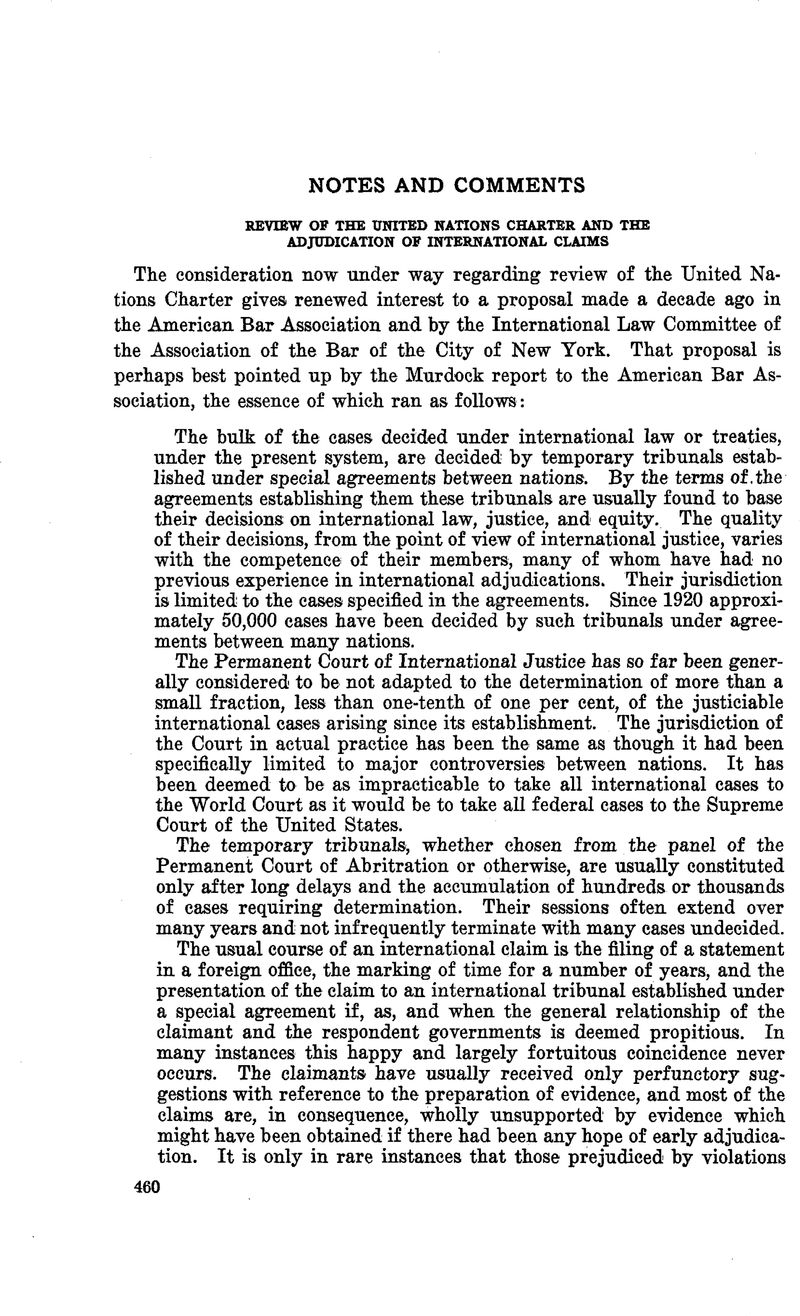No CrossRef data available.
Published online by Cambridge University Press: 30 March 2017

1 Report of the Coordinating Committee on Postwar International Judicial Organization of the Section of International and Comparative Law, American Bar Association. Proceedings, Section of International and Comparative Law, pp. 92, 96–97 (1943–1944). The members of this committee were James Oliver Murdock, Chairman; Edwin D. Dickinson, Amos J. Peaslee, Edgar Turlington, and the present writer.
2 The report did not regard it as practicable to recommend that private persons be given standing as parties plaintiff before international courts, though there is much to be said in favor of this if, as a practical matter, it could be accomplished. Jessup has summarized this matter as follows: “As Dunn has pointed out, the denial of international status to the individual has caused government officials in claims cases to ‘gravely [overemphasize] the importance of the political relations of states at the expense of the activities of men as human beings.’ Instances in which the Department of State has declined to press diplomatic representations on behalf of importunate claimants are frequent and have often been due, not to the demerits of the claims, but to some overriding policy of fostering friendly relations. The Foreign Offices of small states may hesitate to antagonize a powerful neighbor by pressing against it the claim of one of its nationals. On the other hand Brierly has argued effectively that the recognition of the international position of the individual in such cases would promote international peace, since the difficulties of the individual would not automatically be raised to the diplomatic level where they became entwined in ‘that mysterious but potent abstraction, “national honor.”’ Such recognition would also tend to check the grave menace of the promotion by states of private economic interests with which they identify national interests.” Philip C. Jessup, A Modern Law of Nations (1948), pp. 98–99. Brackets are by Jessup.
3 Statement made to the writer by Bert L. Hunt, then Chief of the Claims Section of the Legal Adviser’s Office, Department of State.
4 In 1939 Americans residing abroad numbered 13,239. (Data furnished by the Immigration and Naturalization Service, Department of Justice.) In 1952 the number was 522,788. (Letter from R. B. Shipley, Director, Passport Office, Department of State, July 7, 1953.)
5 U.N. Charter, Art. 92; Statute, I.C.J., Art. 28. In addition to the U.N. Charter itself, the San Francisco Conference dealt with the Statute of the International Court of Justice which forms “an integral part” of the Charter (Art. 92).
6 I.C.J. Yearbook 1948–1949, p. 31, note 1.
7 Ibid. 1946–1947, p. 59.
8 This subject is dealt with in more detail in the November, 1953, issue of the Nebraska Law Review, Vol. 33, No. 1, p. 35 et seq.